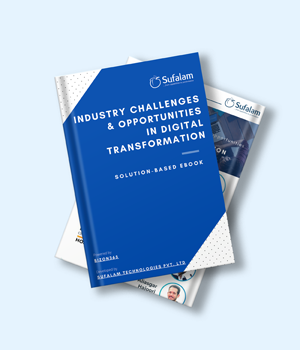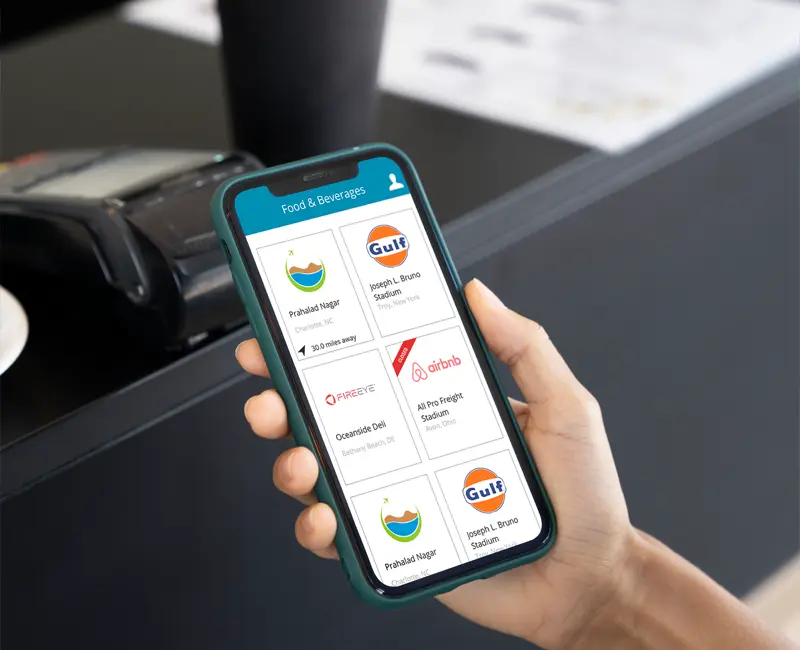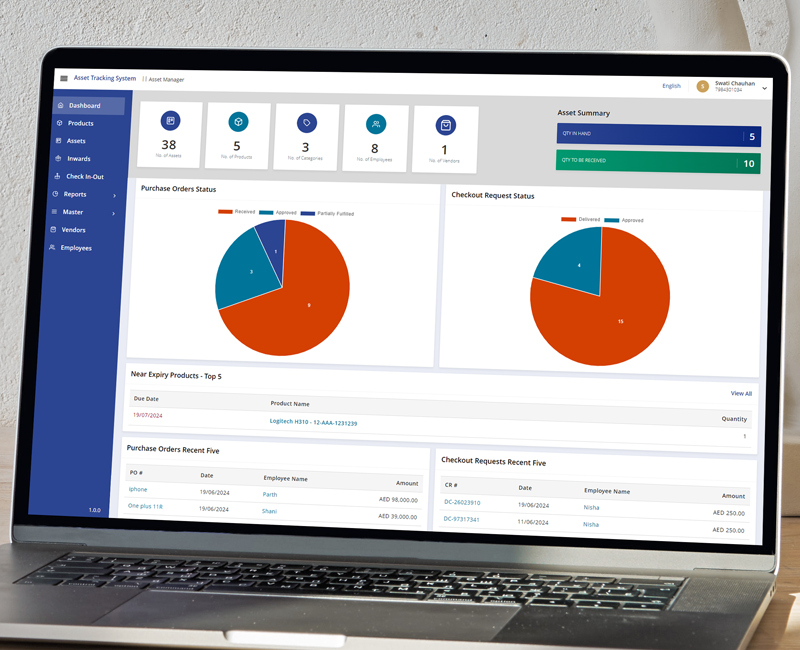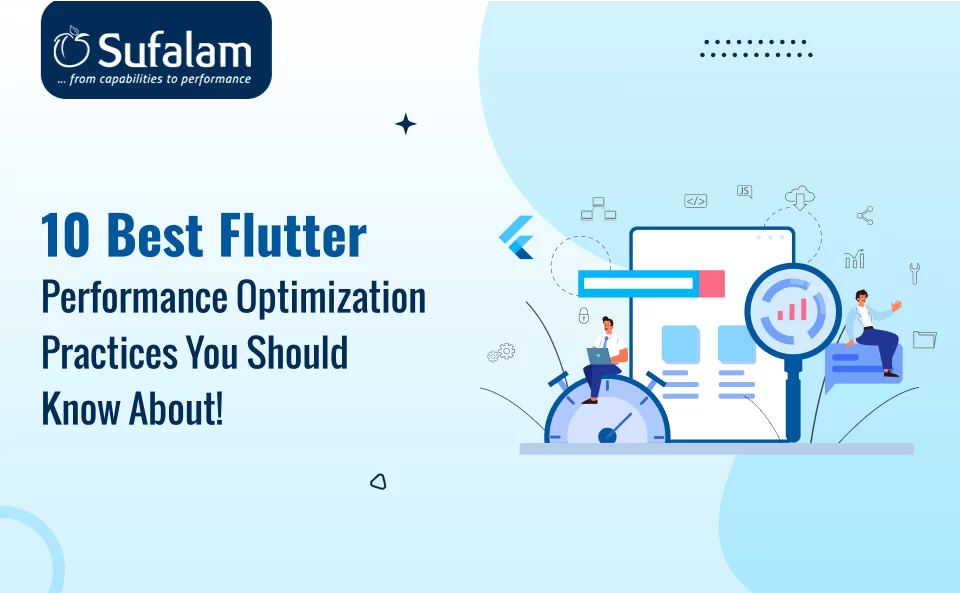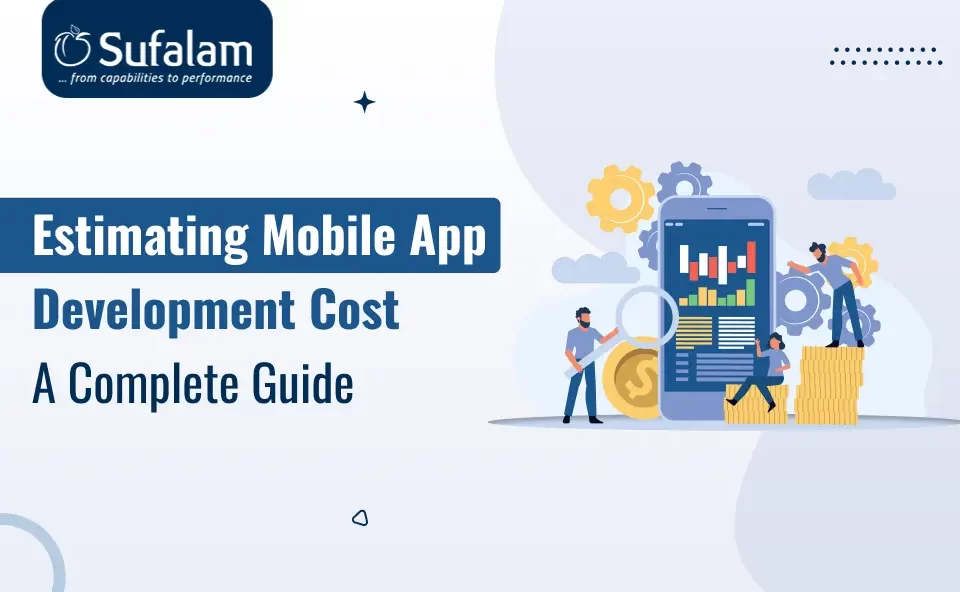Table of contents
- Outlining the Basics: Laravel for Enterprise Application Development!
- The Benefits of Laravel for Enterprise Application Development!
- Scalability the core
- Laravel Security at its best
- Includes (so many features)
- Offers breakneck speed
- Laravel Eloquent ORM
- Open-Source Support and Community
- Seamless Database Migration Systems
- End-to-End Integration capabilities
- Includes robust microservices architecture
- Manage caching seamlessly
- Provides numerous learning resources
- Testing & debugging
- Simplified Coding
- Futuristic Applications
- How much does Laravel enterprise application development cost?
- To Conclude
- Frequently Asked Questions
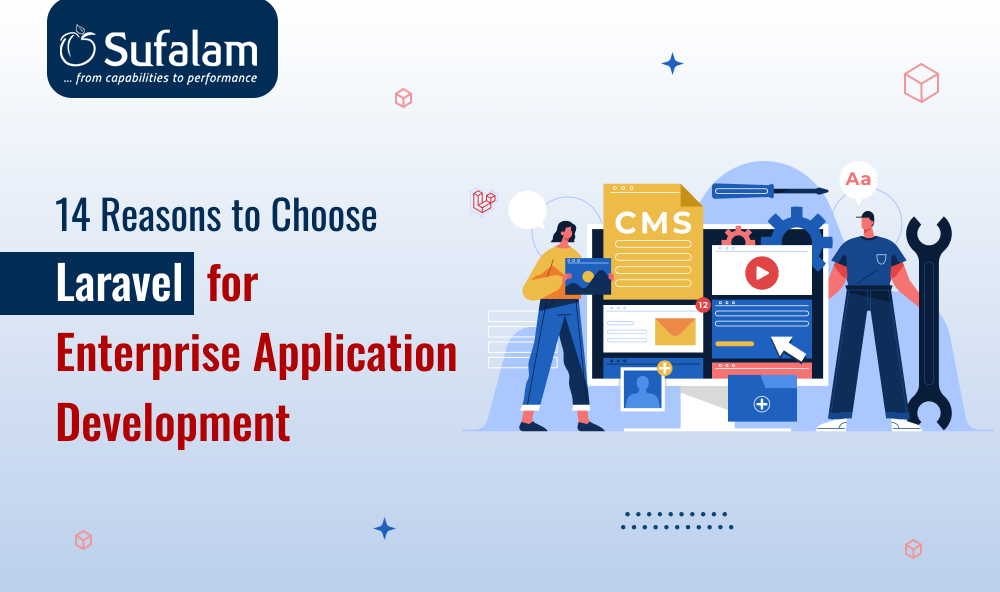
Enterprise-level applications require a distinct set of tools and frameworks to ensure success in the web development world. The well-liked PHP web application framework Laravel has become well-known for its adaptability, scalability, and simplicity of use.
It facilitates the large-scale development of expandable PHP-based websites and web apps. Laravel, one of the world's best MVC-based PHP frameworks, powers 1,723,068 live and historical websites.
But despite all of its features, tools, and libraries, the most frequently asked question in the tech development community is still, "Is Laravel good for enterprise applications development in 2024?"
Well, the answer is yes. Several Fortune 500 companies use Laravel enterprise applications. This is most likely due to Laravel's assistance in creating secure, scalable, and high-quality business projects. However, these are not the only reasons.
There are some more reasons why you ought to create your enterprise applications with Laravel. Alright, let's get going.
Outlining the Basics: Laravel for Enterprise Application Development!
Before we get into the specifics of using Laravel for enterprise applications, let's define what makes an enterprise-level application.
Laravel enterprise applications are sophisticated software programs created to address the intricate requirements of big businesses. These programs usually manage important business operations, including supply chain management, human resources, and customer relationship management.
Taylor Otwell created Laravel, an open-source PHP framework based on the Model View Controller architectural pattern, in 2011 and since then it has grown in popularity, especially for creating high-end scalable enterprise apps.
Because of its elegance, simplicity, and wealth of documentation, developers can quickly start creating scalable and maintainable apps.
The Benefits of Laravel for Enterprise Application Development!
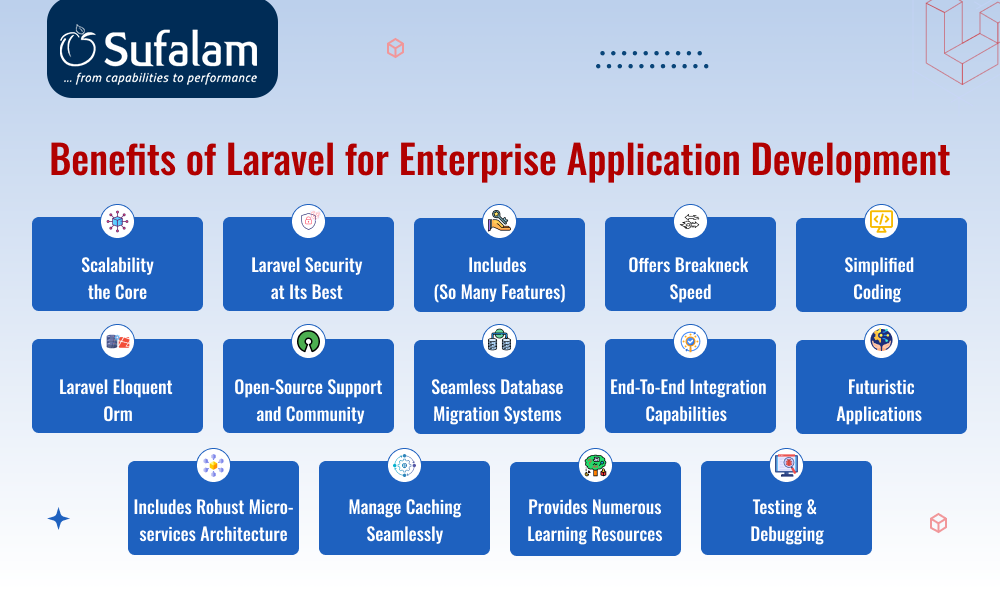
-
Scalability the core
In the context of enterprise application development, meeting market standards requires the ability to support large user bases and handle high traffic loads. Laravel is an excellent option for this purpose.
Laravel's support for horizontal scaling allows developers to split up their apps across several servers as needed. It offers functions like load balancing, database replication, and caching. When combined, these attributes offer unparalleled scalability and optimal performance, even in the face of heavy traffic volumes.
-
Laravel Security at its best
Since security is of the utmost importance in enterprise application development processes, Laravel security provides built-in protections against cross-site scripting (XSS), cross-site request forgery (CSRF), and SQL injection attacks.
Laravel ensures that its operations will operate securely by incorporating features like password hashing encryption and two-factor authentication to guard against vulnerabilities.
-
Includes (so many features)
Laravel includes a plethora of features that speed up Laravel enterprise application development and significantly increase the productivity of custom Laravel development services.
Developers can save a great deal of time and effort because it comes with built-in support for tasks like routing, caching, security, authentication, and database migrations. With the help of the vast range of Laravel packages and libraries available in Laravel's ecosystem, developers can easily add functionality to their applications.
-
Offers breakneck speed
Speed was one of Laravel's unique selling points, and it continues to outperform numerous frameworks today. Regardless of how much traffic your app gets, performance optimizations such as asynchronous jobs and batching database queries ensure that it continues to run at peak speed.
Its built-in features increase developer productivity and offer enterprises speed, which is crucial whether you're concerned with time to market or just updating software.
-
Laravel Eloquent ORM
Laravel Eloquent, an elegant and user-friendly object-relational mapping system, is one of Laravel's greatest features. Eloquent's expressive and intuitive syntax simplifies database tasks, resulting in more fluid and easy database interactions.
Developers can work with database records using PHP objects with Eloquent, which eliminates the need for intricate SQL queries and improves the readability of code. This feature should be utilized by all businesses offering custom Laravel development services for enterprise-level applications, which frequently have intricate data relationships.
-
Open-Source Support and Community
You are aware that open-source software is free and has greater support. This simplifies support because if an issue arises, you can simply post it on the community forum and receive responses.
You may quickly resolve problems with your enterprise application development that are causing a bad user experience or anything similar by working with the active Laravel open-source community. To get the community's full support, all you need to do is post about your problem(chances are that they already suggested a problem) and if not, you can just simply ask & get it. Yes, it is that easy.
-
Seamless Database Migration Systems
Database migration is among the most common tasks. When faced with the task of database migration, even the most experienced developers get confused.
As a developer, you will almost certainly need to migrate the database when working with enterprise applications. This is where the Laravel framework comes in handy, as it lets you expand the database structure without having to start from scratch. As a result, there is less chance of losing any crucial data, and the laborious migration process is simplified.
-
End-to-End Integration capabilities
When it comes to integration capabilities, Laravel is unmatched; it provides a flexible and easy-to-use framework for integrating with enterprise systems, APIs, and third-party services. Laravel's flexibility guarantees seamless integration with payment gateways, communication platforms, and CRM systems.
Because of Laravel's support for RESTful APIs, developers can easily integrate with external services and apps, streamlining the integration process.
-
Includes robust microservices architecture
In a microservices environment, applications are broken down into smaller, independent services. Laravel provides a unified ecosystem that adheres to the concepts of adaptability and scalability.
One of the most significant advantages of using Laravel in a microservices environment is increased upkeep and flexibility. Every microservice can be developed, tested, and deployed separately, just like any other standalone application. This decoupling of services makes updates and maintenance easier because changes to one microservice do not always affect others.
-
Manage caching seamlessly
Laravel's streamlined approach to caching requires minimal code changes, allowing developers to easily implement caching strategies. It takes less time and effort to optimize an application's performance through caching mechanisms because of its simplicity, which results in faster development cycles.
Faster-loading applications improve the user experience by decreasing bounce rates and increasing user engagement. In addition to improving the application's overall performance, it also guarantees a more economical and sustainable infrastructure.
-
Provides numerous learning resources
One of the easiest frameworks to use is Laravel, which offers a plethora of educational materials and annual conferences to help you advance your knowledge of programming. The resources are also very helpful because they offer detailed instructions on how to build your application, which will help minimize future startup errors. This framework is popular among entrepreneurs due to its ease of learning.
Many learning resources teach all levels of programmers how to use the language, and they often include real-world examples, which make them more practical. The ease with which Laravel handles caching directly contributes to increased application acceleration and responsiveness.
-
Testing & debugging
PHPUnit, an integrated testing suite from Laravel, makes thorough testing of applications easier. To make sure that their applications are stable and dependable, developers can create functional, integration, and unit tests.
Laravel's Debugbar facilitates error reporting and debugging. It makes the process of developing custom mobile applications more enjoyable overall by assisting in the timely identification and resolution of problems.
-
Simplified Coding
The Laravel development platform provides easy-to-follow tutorials to help streamline the paradigm of coding. It reduces the overall time required to write complex code by providing clear instructions at various stages of development.
It gives developers the ability to write optimized code and work effectively with less complexity quickly. This framework makes it simple for all of your developers—experienced or not—to understand and produce high-quality code.
-
Futuristic Applications
The goal of the vibrant and engaged core team and the large Laravel community is to make Laravel the best PHP framework available. The developers of Laravel are always working to improve the framework, and new features are added with every release.
Thus, companies can be certain that they will create web apps that are ready for the future and will strengthen your company. By updating the apps as needed, businesses can stay abreast of their business requirements. It also provides for scalability. In the rapidly changing tech industry, applications built with Laravel will unquestionably be more scalable and effective.
How much does Laravel enterprise application development cost?
You now have a thorough understanding of all the benefits and features of Laravel at the enterprise level. The next action, though, is to find out how much it will cost to develop your Laravel enterprise application.
The cost of Laravel enterprise development can vary widely depending on several factors such as project complexity, feature requirements, the development team's location, and the project duration.
As an estimate, a comprehensive enterprise application could cost anywhere from $20,000 to over $100,000, depending on the specific needs and scope of the project. If you are looking to get the accurate cost, update our team, and will get back to you for a Laravel development services estimate.
To Conclude
Ultimately, we can say that one of the best decisions you can make to maintain, expand, and improve your company is to use Laravel for Enterprise Application Development.
With strong features that improve performance, security, and scalability, this framework is a great option for companies looking for strong yet effective software solutions. With its extensive libraries and elegant syntax, Laravel streamlines development and makes it easier to create complex apps.
Its vast ecosystem and vibrant community also offer businesses a wealth of resources and assistance. All things considered, Laravel represents the ideal balance of functionality and flexibility in offering highly interactive enterprise applications.
With a wealth of experience creating scalable enterprise solutions, Sufalam Technologies is your one-stop shop. So, hire dedicated developers from our leading company & let’s get started.
Frequently Asked Questions
Which are the top enterprises using Laravel for enterprise application development needs?
The top enterprises using Laravel for their app development needs are Pfizer, BBC(British broadcasting corporation, OpenAI, Toyota, 9Gag, Liberty Mutual Insurance, DISQO, Tour Radar & Magneto IT solutions.
Can Laravel integrate with other systems and technologies?
Yes, Laravel can easily integrate with various third-party systems and technologies, including payment gateways, email services, social media APIs, and more, thanks to its robust package system and API support.

